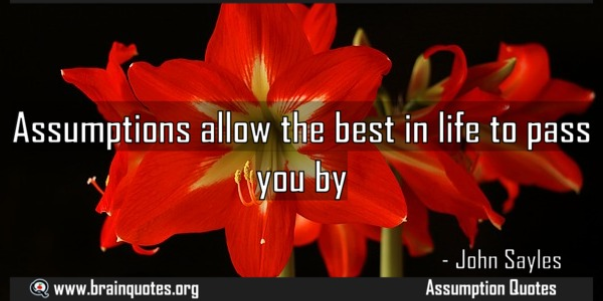One of the areas of manager coaching that always seems complicated is that where your team member has an issue with another person and wants to talk about it. Indulging this can feel like gossip – and it is gossip where you, as the manager, get caught up in the content and your curiosity is about what happened, and who said what, and what next, etc. etc. I have had many times in my coaching career where I have been coaching several (and sometimes all) members of a team, including the leader of that team.
In my contracting under such circumstances I always say something like this: “I am going to hear from all of you about all the rest of you. In every conversation where one of you talks about an issue or concern you have with any other member of the team, I will only be interested in thinking about what you are going to do about it – whether that involves dealing with that team member or dealing with yourself. I will not have any conversation with any of you that you should be having with each other. You may say anything you like about any other member of the team. But know that before the end of the coaching conversation I will always ask you what you are going to do about it.”
This is not gossip. This is coaching – your intention is to assist the team member to understand what is going on for them and then decide what they are going to do. You should contract something like this with your own team members when you take on coaching as your leadership style.
In some instances, your role might be to challenge their assumptions about the intentions of the other person. Team members often react strongly to the actions, comments or other behaviour of a colleague because they assume that the behaviour has something to do with them: “she seems to get pleasure out of making me look like an idiot”; “he’s just trying to make it look like the error happened in my team, when the problem is really in his team”; “no matter how well I prepare for my meetings with him, he always manages to throw me a curved ball – it’s like he always wants to show me up as not having covered something”.
In other instances, team members will talk about something that really suggests that a courageous conversation is required. In my book, a courageous conversation is one in which something important needs to be communicated to a colleague because it relates to their effectiveness and success – and not communicating it increases the likelihood that this colleague will get themselves into difficulties that could be prevented – and there is the likelihood that the colleague may not respond well to the conversation. In other words, something must be said AND they may react badly. Nevertheless, a conversation must be had.

You will know that the issue relates to your team member’s assumptions if they say things like “I don’t know why she always wants to make me look like an idiot”, or “He’s trying to pin this on my team when the problem is really somewhere else”, or “I don’t know why he’s always so angry with me”. There are many variations on this theme. Often the behaviour that is described is defensive – anger, aggression, stonewalling, blame. Any defensive behaviour suggests that the protagonist feels the need to defend – in other words, they feel at risk or under attack. It is by creating the opportunity to think about what might be going on for the other person that you challenge the assumptions of your team member. In some cases, the person you are coaching will understand that they are the reason why their colleague feels the need to defend themselves – in which case, your coaching may be about how they might behave differently in order to arrive at a more productive outcome. In other instances, your team member may realise that the defensive behaviour of their colleague is not about them at all – that there is something going on in the environment that is making their colleague feel at risk or under attack or under relentless pressure. In this case, your coaching might result in a bit of compassion for the other person. “What might be going on for so-and-so that might make her feel that she needs to defend or protect herself?” This compassion will either cause them to decide to let the “bad behaviour” pass with no response at all – knowing that “it is not about me” - or to have a courageous conversation with their colleague about the impact their behaviour is having.
Courageous Conversations
As I said earlier, I believe a conversation is courageous when the content may be hard to hear, must be heard, and the reaction might be strongly negative or emotional. Most often, people avoid such conversations either because they don’t want to hurt their colleague, because they want to avoid unpleasantness or because they simply don’t care enough about their colleague to say what must be said. All of these reasons are problematic.
When you do not want to hurt or upset a colleague, your empathy is going to harm your colleague because avoidance of the conversation means that they will not hear something that will help them. When you want to avoid unpleasantness for yourself, you are protecting yourself by being insincere. And if you simply don’t care for your colleague enough to have the conversation, this is actually passive-aggressive behaviour – hanging a team member out to dry, when something could have been done.
I’m a big fan of Kin Scott’s book, Radical Candor. She teaches that truly courageous conversations require two things: firstly, that you genuinely care about the best interests and well-being of the other; and secondly, that you challenge them directly in terms that are clear and unequivocal.
Let’s start with the first part. In coaching the team member with the issue, you need to confront the issue of care: “Do you care enough about the best interests and well-being of your colleague (and the team) to have a conversation that makes you feel uncomfortable?” This is a whole coaching topic on its own. If your team members do not care enough about each other to do this, then you have some work to do with them team in creating psychological safety, mutual care and concern and a climate of candour. If the issue is only with the team member being coached, your conversation might be about the impact on the team of their not caring – there is no point in coaching on how to challenge directly until a point of caring has been achieved. Failure to do so may result in this team member sharing feedback in an obnoxiously aggressive manner – or not sharing it at all. (And don’t fall for the line that “You are the manager. You must handle it.” It is only if the attempts at a courageous conversation by your team member fail that you might step in. It is important that team members have the courage to handle issues directly with one another.)
Once you are satisfied that your team member cares enough about their colleague and the team to have a courageous conversation, your coaching can turn to how to have the conversation. You might find the following questions useful:
- “What do you want your colleague to know and understand?”
- “How will you say it?”
- “What could you say to your colleague before you start that might make them receptive to hearing what you need to say?” (It is often useful to set a courageous conversation up with something like “I need to talk to you about something that you may find difficult to hear. I want you to know that I am sharing it with you because I care about you and your success. Could I ask you to hear me out to the end before you respond?”)
- “How can you be part of the solution? How can you be supportive?”
- “What strong reactions do you expect from your colleague? How will you deal with these if they happen?”
- “Tell me about your own possible reactions and feelings. What will you do to keep these in check?”
- “When will you have this conversation?”
- “Would you like to check in with me after you have had the conversation?” (This is probably a useful thing because you will then have a sense of how the issue was handled and the outcome.)


 RSS Feed
RSS Feed


